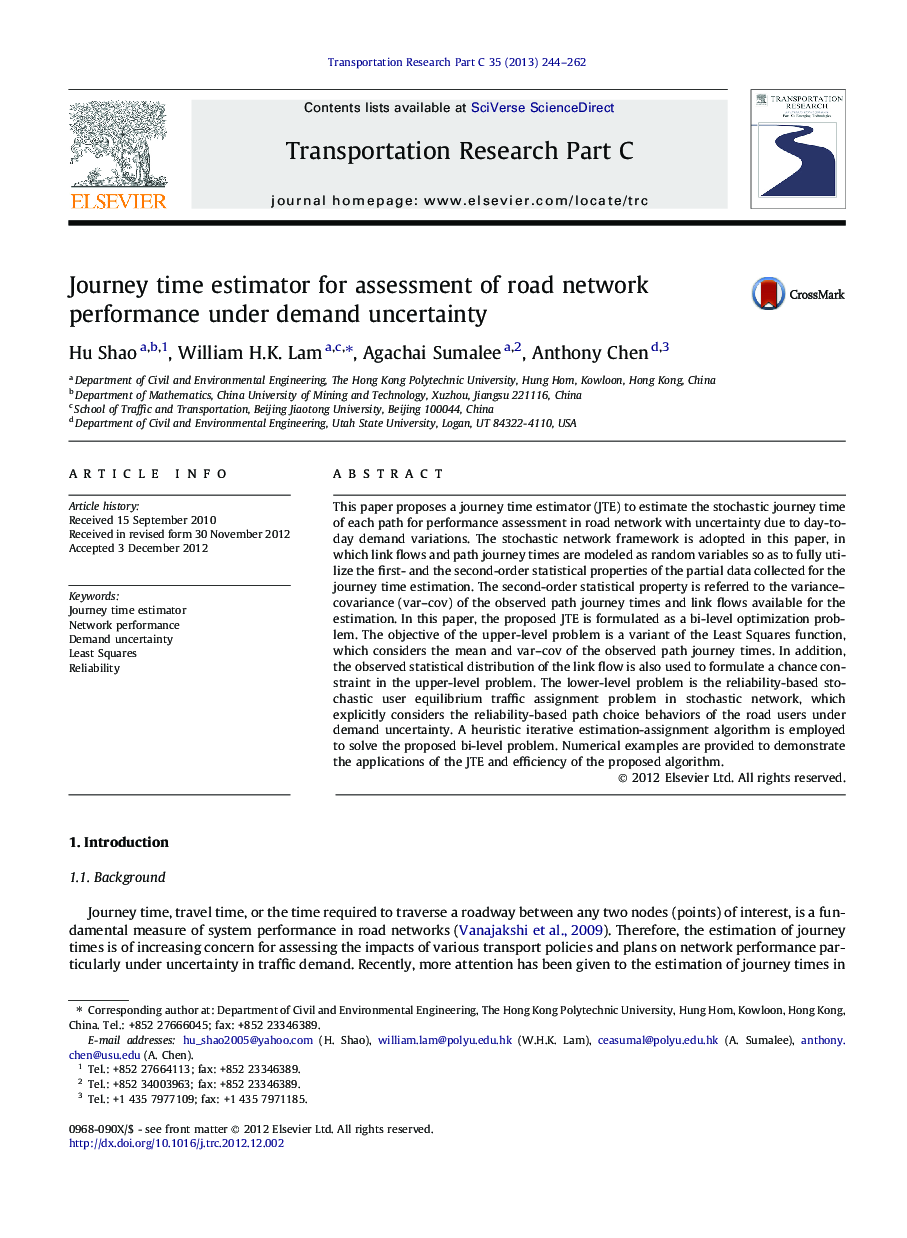| Article ID | Journal | Published Year | Pages | File Type |
|---|---|---|---|---|
| 526495 | Transportation Research Part C: Emerging Technologies | 2013 | 19 Pages |
This paper proposes a journey time estimator (JTE) to estimate the stochastic journey time of each path for performance assessment in road network with uncertainty due to day-to-day demand variations. The stochastic network framework is adopted in this paper, in which link flows and path journey times are modeled as random variables so as to fully utilize the first- and the second-order statistical properties of the partial data collected for the journey time estimation. The second-order statistical property is referred to the variance–covariance (var–cov) of the observed path journey times and link flows available for the estimation. In this paper, the proposed JTE is formulated as a bi-level optimization problem. The objective of the upper-level problem is a variant of the Least Squares function, which considers the mean and var–cov of the observed path journey times. In addition, the observed statistical distribution of the link flow is also used to formulate a chance constraint in the upper-level problem. The lower-level problem is the reliability-based stochastic user equilibrium traffic assignment problem in stochastic network, which explicitly considers the reliability-based path choice behaviors of the road users under demand uncertainty. A heuristic iterative estimation-assignment algorithm is employed to solve the proposed bi-level problem. Numerical examples are provided to demonstrate the applications of the JTE and efficiency of the proposed algorithm.
